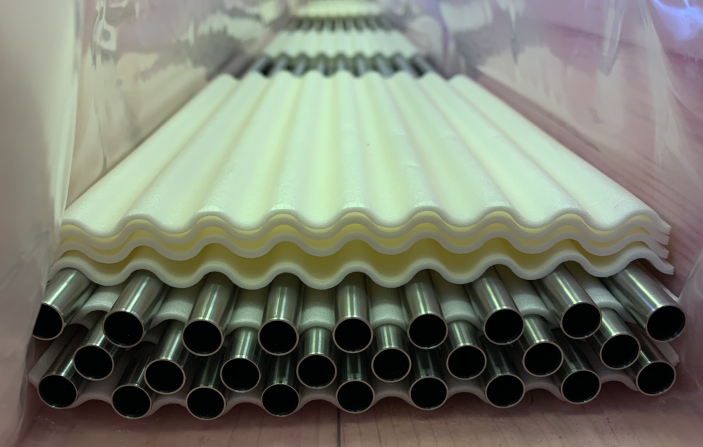Investigating the Zirconium Cladding Tubes of New Paks NPP Fuel Assemblies at Centre for Energy Research

At the end of 2020, the operation of new VVER-440 lead test assemblies optimized for the water-uranium ratio will start at the Paks Nuclear Power Plant. The new fuel rods have a thinner cladding than the current ones and the traditional VVER hollow UO2 pellets are replaced by solid pellets.
With the introduction of new fuel, fewer fresh assemblies will be needed for refuelling of the reactor. The number of spent fuel assemblies requiring temporary storage and final disposal will be also reduced. All this results in economical utilisation of nuclear fuel.
In parallel with the delivery of the lead test assemblies, a consignment of tubes from which the new fuel cladding is made arrived from the Russian fuel factory. Various measurements will be carried out at the Centre for Energy Research with these tubes made of zirconium alloy containing 1% niobium. On the one hand, the planned measurements will allow independent verification of the data provided by the fuel supplier, and on the other hand, the new experimental database will provide an opportunity to further develop and validate the numerical models used in nuclear power plant safety analyses.
The experimental program will investigate the effect of high-temperature oxidation, hydrogen uptake, and high-temperature treatment in inert atmosphere on the cladding tubes. Based on the mechanical tests, the tensile strength of the cladding will be determined, and the mechanical interaction between the cladding and pellet will be simulated. Long-term measurements will be made to determine the creep characteristics and the conditions for ballooning and burst of the cladding tubes. An electrically heated bundle will be used to conduct an integral experiment to simulate loss-of-coolant accident scenario.
The planned experimental program will provide important information on the behaviour of new fuel under normal operating and accident conditions, as well as on the processes that will take place during the interim storage of spent fuel assemblies.
Zoltán Hózer
Centre for Energy Research
zoltan.hozer@ek-cer.hu